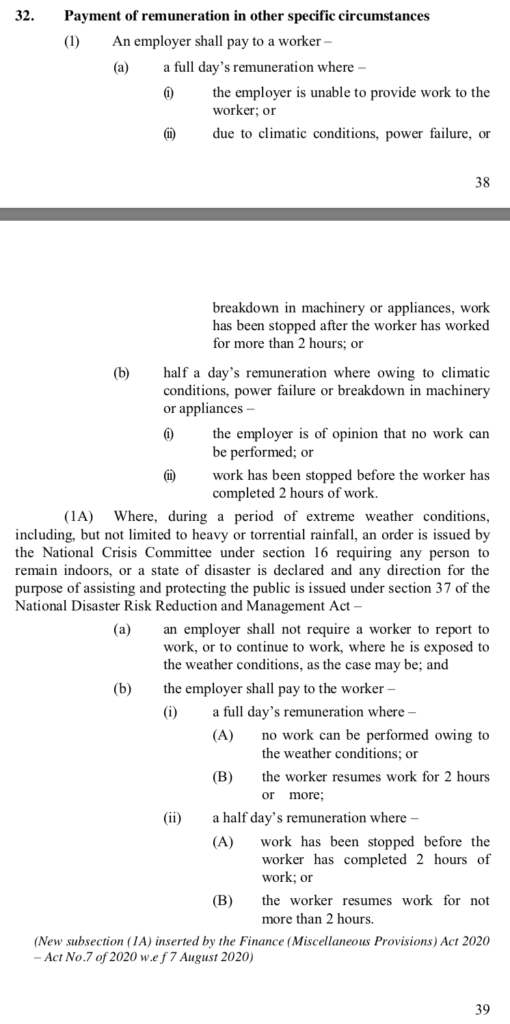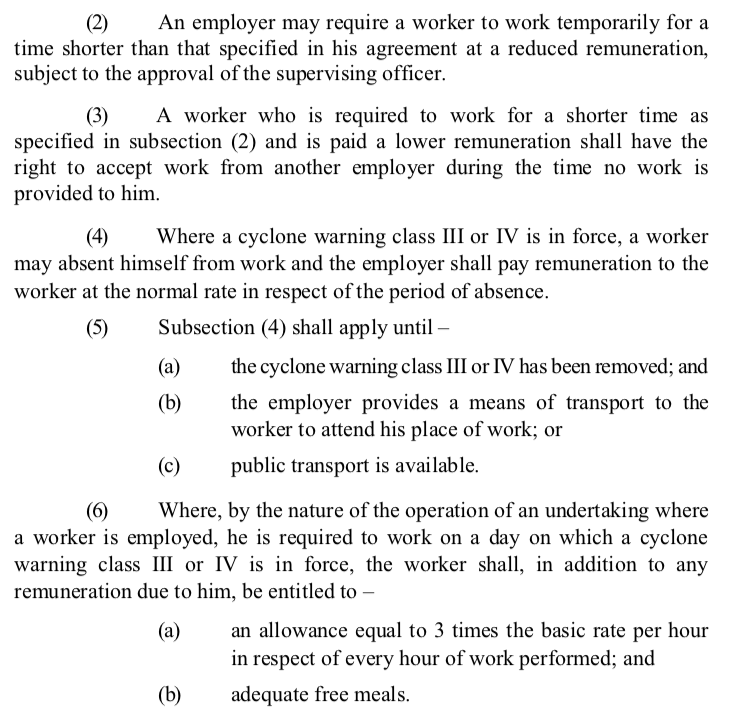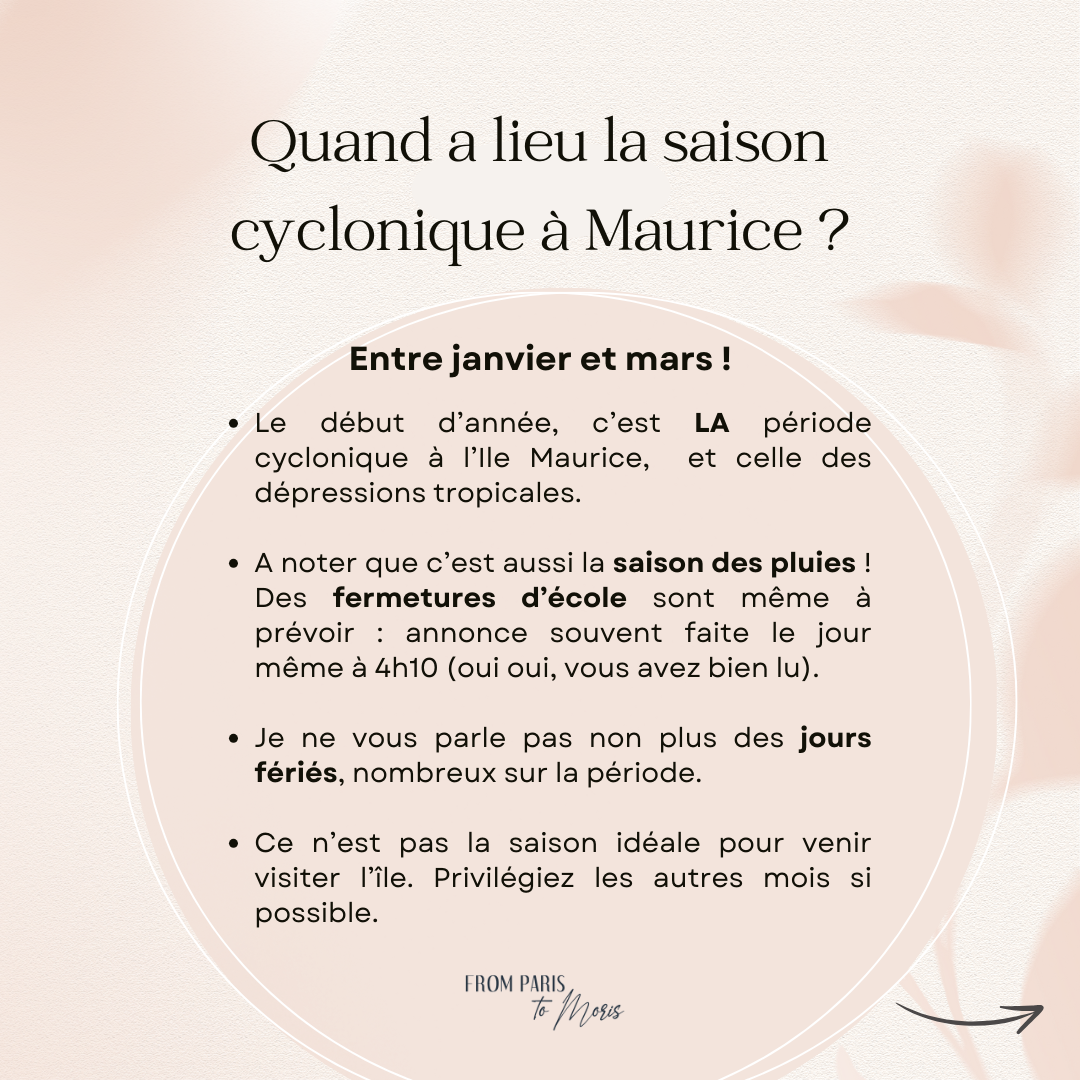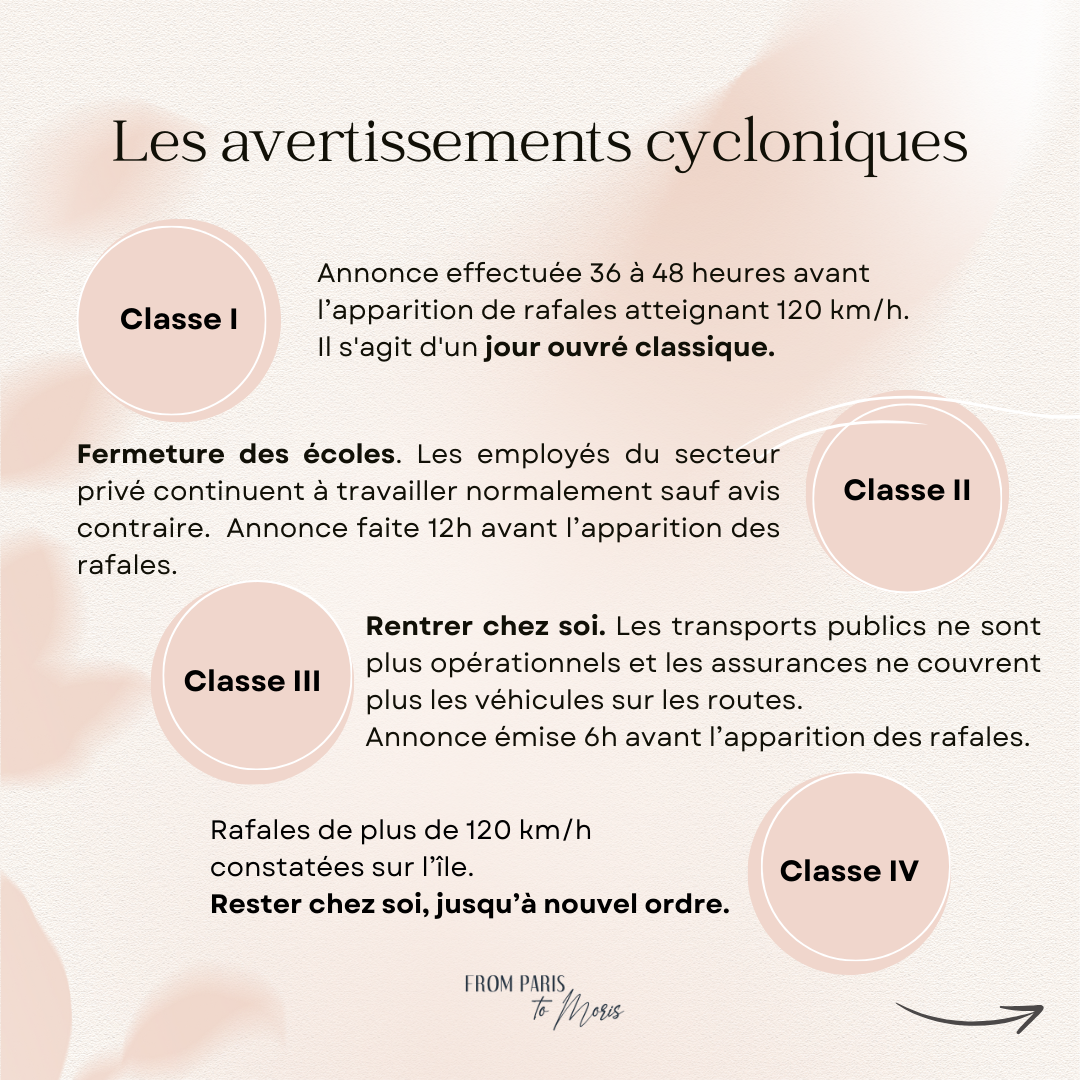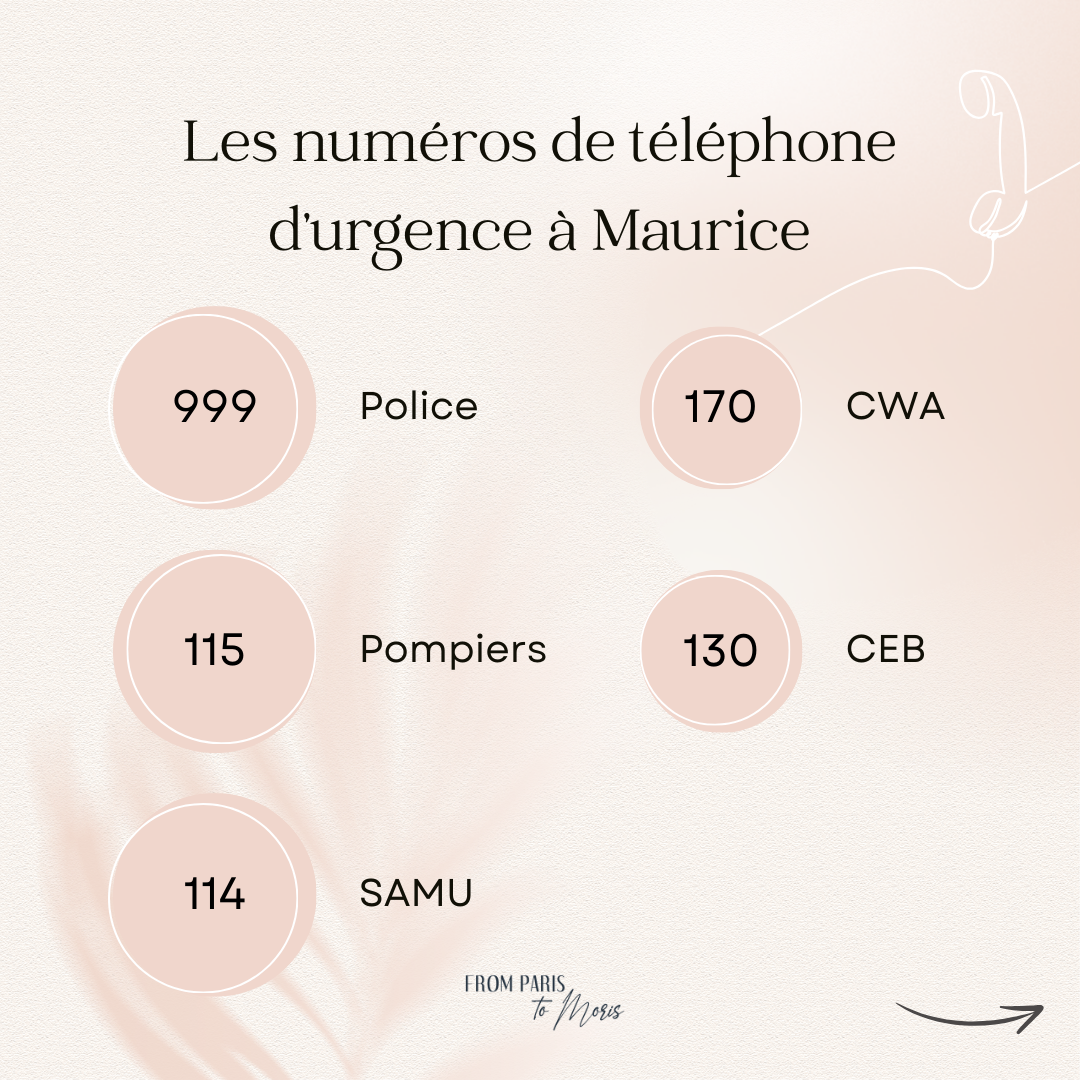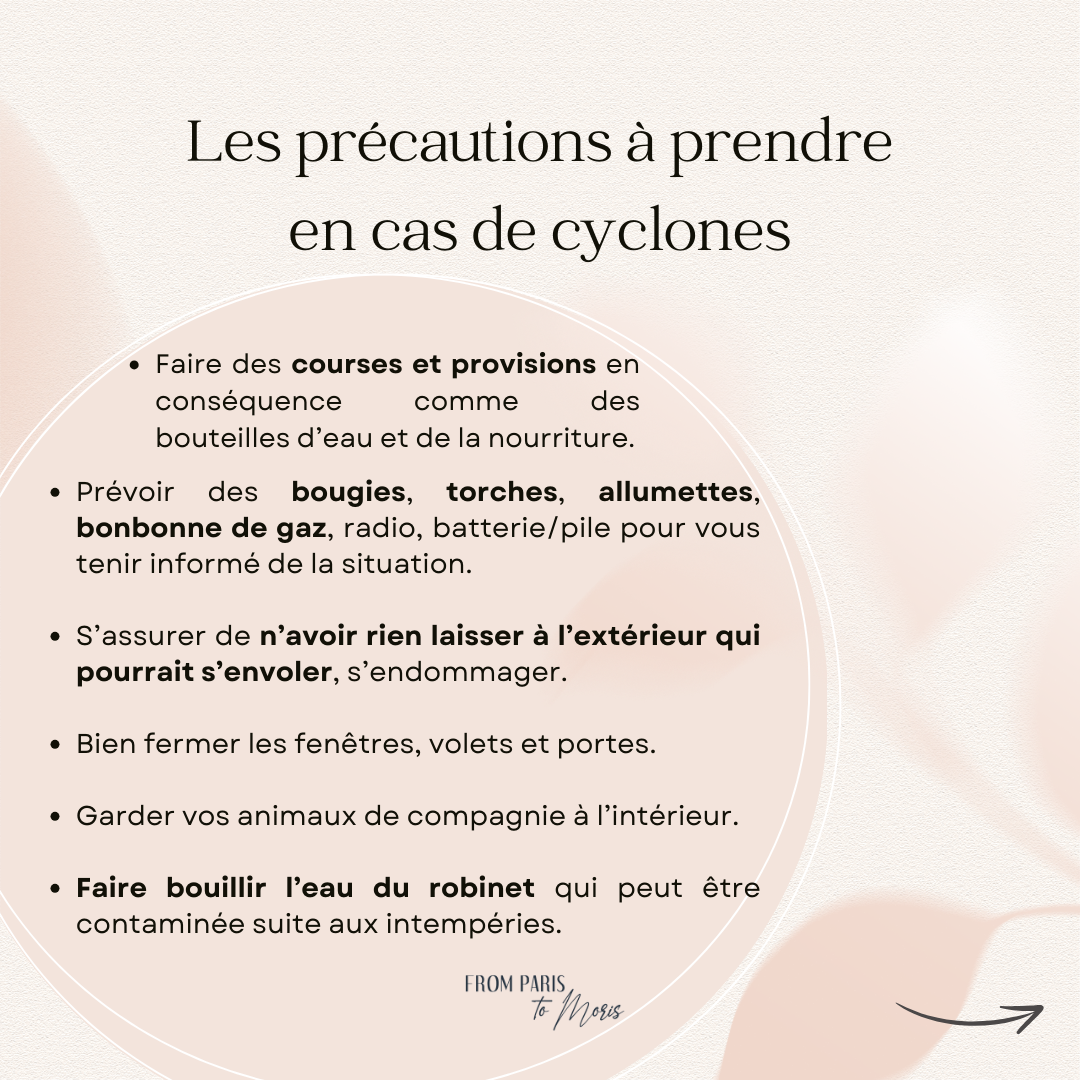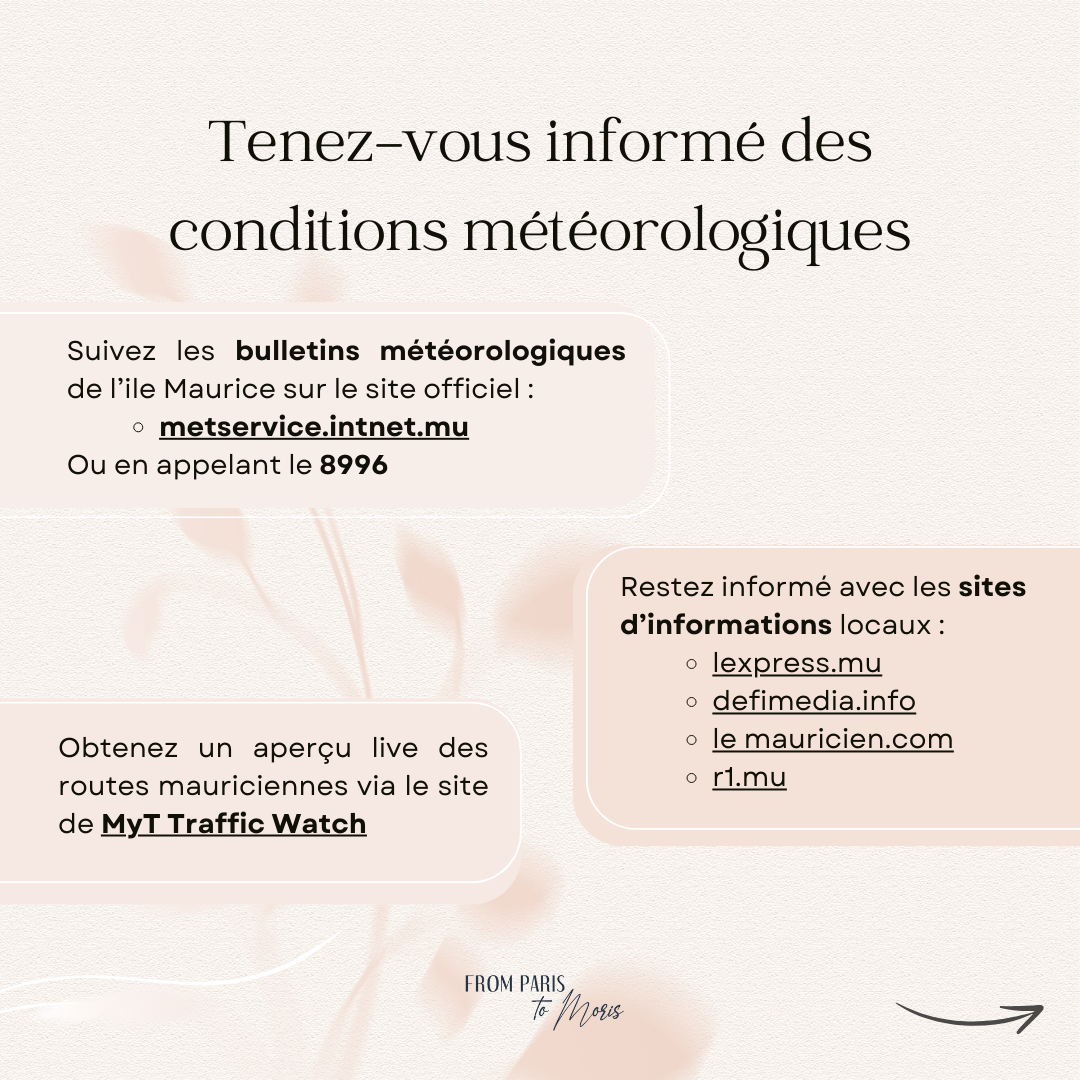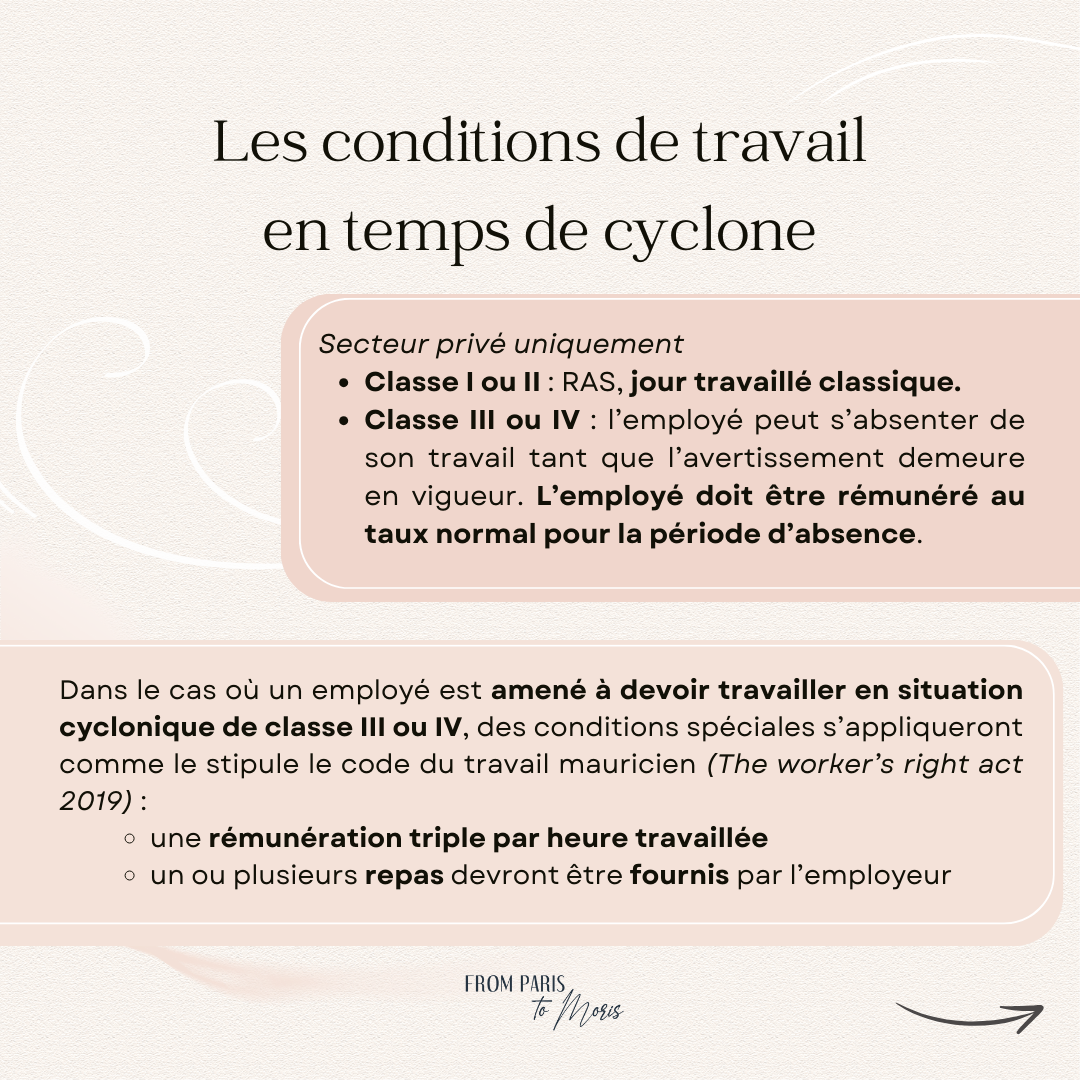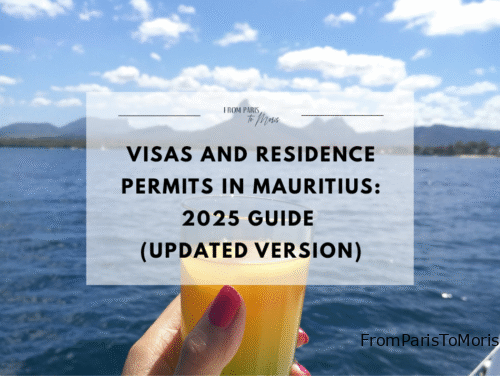Despite 300 or more days of sunshine a year, there is also a cyclone season in Mauritius, with plenty of wind and torrential rain during this period.
Find out more about cyclones in Mauritius below.
When is the cyclone season?
The cyclone or rainy season takes place between December and April. It’s also known as the rainy season because it’s the period when the most rainy days per month are recorded in Mauritius. Since our arrival, it’s mainly during the months of January and February that we’ve seen heavy rainfall.
How are cyclone warnings classified in Mauritius, and what do they mean?
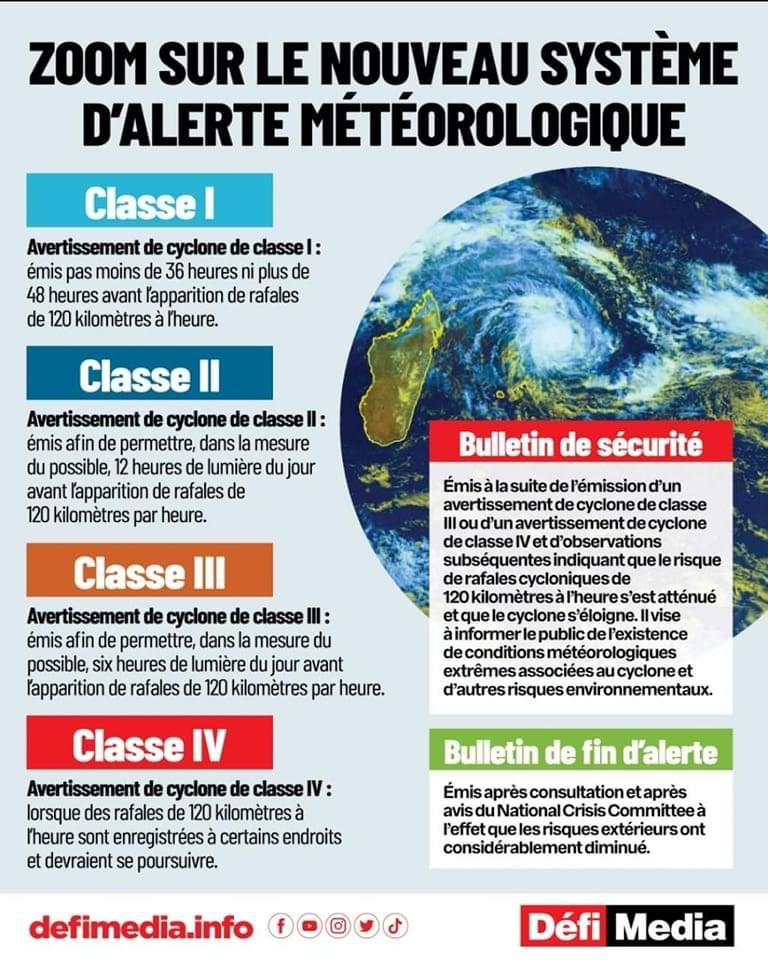
Weather warning system introduced on January 18, 2022
4 levels of cyclone strength and intensity:
- Class I (1 red flag): announcement made 36 to 48 hours before the cyclone passes over Mauritius and Rodrigues. Low probability of gusts reaching 120 km/h.
This is a normal working day, so no special remarks. - Class II (2 red flags): there is an increased risk of gusts reaching 120 km/h: Schools closed. Private sector employees continue to work as normal.
- Class III (3 red flag): there is a strong risk of gusts reaching 120 km/h.
Go home. Public transport is no longer
operational and insurance companies no longer cover vehicles on the roads. - Class IV (4 red flag): Gusts of over 120 km/h have been recorded on the island.
Stay at home until further notice.
- Class I (1 red flag): announcement made 36 to 48 hours before the cyclone passes over Mauritius and Rodrigues. Low probability of gusts reaching 120 km/h.
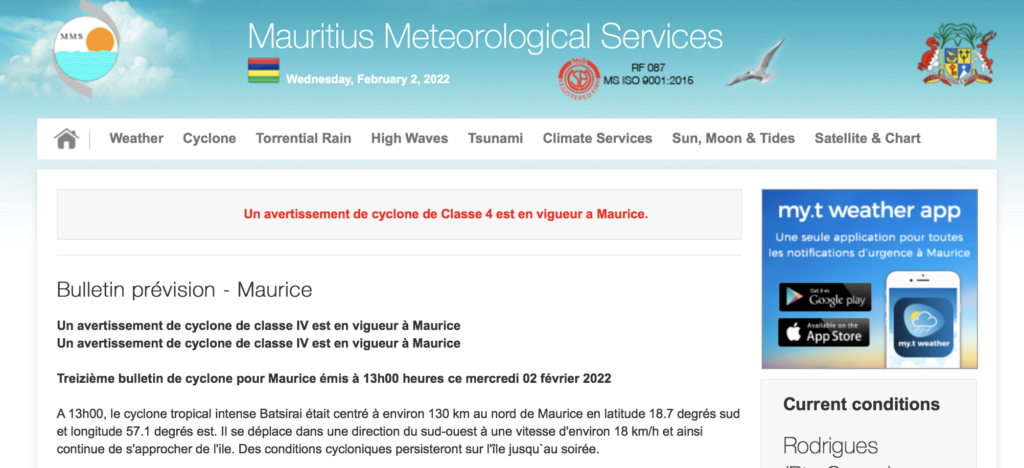
At the end of a cyclone warning, a blue flag will replace the red flags, indicating that there is no longer any risk of 120 km/h gusts.
What are the working conditions in cyclone conditions?
Class I and/or Class II
If a Class I or II cyclone warning is in force, these are standard working days.
Schools are closed only in Class II.
Class III and/or Class IV
When a Class III or IV cyclone warning is announced, an employee may be absent from work for as long as the warning remains in force. However, the employee must be paid at the normal rate for the period of absence.
However, different conditions may apply to public-sector employees, as they may in some cases be exempt from Class II or above.
If an employee is required to work in a class III or IV cyclonic situation, special conditions will apply, as stipulated in the Mauritian Labor Code(The worker’s right act 2019, see extracts at the bottom of the article):
- triple remuneration per hour worked
- one or more meals must be provided by the employer for the time worked.
These conditions may not apply to certain professions (medical corps, police force, etc.).
End of class III
As soon as a Class III or IV cyclone warning is replaced by a Class II warning, or even cancelled, the employee is expected to report for work whenever possible. Public transport is back in operation.
What precautions should be taken?
If your electricity or water supply is cut off, you may be in for it. Here are the recommended precautions:
- Make sure you have all the necessary supplies, such as bottled water.
- Bring candles, torches, matches, gas cylinder, radio, battery/battery to keep you informed of the situation.
- Make sure you don’t leave anything outside that could fly away or be damaged.
- Close windows, shutters and doors.
- Keep your pets indoors.
What websites can I consult to stay informed?
- The Mauritius meteorological website (this is where you’ll find the cyclone level):
- The Mauritius meteorological website (this is where you’ll find the cyclone level):
- News sites:
- The MyT traffic watch website where you see live images of Mauritian roads.
→ Read my article on the best season to come to Mauritius, where I describe the local weather month by month.
Further information – Workers’ right act 2019
You will find extracts from THE WORKERS’ RIGHTS ACT 2019 – (as at 7 September 2020) below relating to working conditions in the event of bad weather(SECTION D – Remuneration in specific circumstances) :
